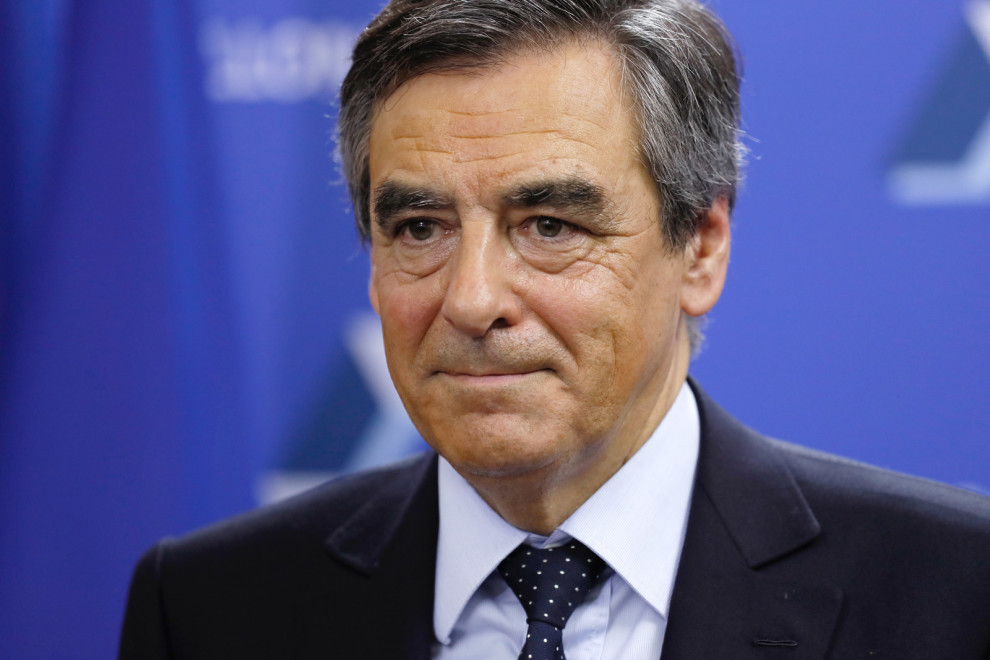
The first round of the centre-right Les Républicains primary election in France ended with a familiar outcome on Sunday: an outcome few predicted would happen.
A vote that will decide who will become the favourite to succeed François Hollande as the next president of France will see former prime minister François Fillon and Bordeaux mayor Alain Juppe face each other in a runoff vote this coming Sunday. The candidate everyone outside of France knew best, former president Nicolas Sarkozy, suffered a crushing defeat that is likely to put an end to his political career.
For months, Fillon was a distant third in the polls. But in the final week of the campaign, he rode a late wave of support to with 44% of the vote share. His was a dominant performance across the country.
Until 24 hours ago, Juppe was the favourite to win the primaries and the presidency. Although some of the “anyone but Sarkozy” vote could swing to the Bordeaux mayor, Fillon, who served as the prime minister under Nicolas Sarkozy from 2007-2012, is now seen as the candidate most likely to win the nomination.
In terms of next year’s presidential vote, both candidates currently hold a comfortable lead over the far right’s Marine Le Pen across polls but Fillon’s advantage is seen to be less commanding.
Both Fillon and Juppe will be seen as establishment candidates.
However, they hold very different views on a number of crucial issues. A Fillon nomination would alter the dynamics of next year’s presidential election.
Economically, Fillon is a Thatcherite, a bold position in France. He has pledged to shrink the size of the state by slashing 500,000 public sector jobs and cutting welfare spending. Should Fillon win the nomination, his promises to reform pensions and the labour market will be unpopular with many voters on the left, some of whom may find more in common with Le Pen’s economic proposition than with that of the centre-right nominee.
Others may stay away from the polls on voting day.
Meanwhile, many French progressives will be disturbed by Fillon’s social conservatism. The former prime minister is against equal marriage and medically assisted procreation for lesbian couples and single women. He opposes LGBT adoptions, and, if elected, has promised to enshrine into law the principle that a “child is always the fruit of a father and a mother”. In 1982, he voted against decriminalising homosexuality. In Sunday’s vote, the former prime minister received strong backing from France’s various Catholic networks and movements.
Fillon’s position on these issues could open up a space among centrists who would look to find a candidate between an unpopular Socialist president and a conservative right that they can embrace next year. Hollande’s former economic minister Emmanuel Macron will be among those trying to capture the more centrist views should Juppe vacate the contest.
But Fillon’s position on these issues will be appealing to some on the hard right. On issues of identity, although Fillon did not adopt the divisive rhetoric of Sarkozy, he is seen as more of a hardliner than Juppe. During the campaign, he published a book on “defeating Islamic totalitarianism” and said “there is no religious problem in France. There is a problem with Islam.”
Like Sarkozy, Fillon has called for rapprochement with Russia. A long-held Russophilia would suggest that the French position on sanctions would change should Fillon win the presidency next year. Change in leadership in Paris could eventually shift EU policy, and lead to a significant recalibration within the EU.
On foreign policy, Fillon in many ways sits within the traditional view of the French right. Ahead of Sunday’s vote, Dr Alex Clarkson, a lecturer in German and European and International Studies at King’s College London, told BuzzFeed News that “within the French right going back to de Gaulle there has always been a sentimental attachment to the notion that the Russians can be ‘civilised’ and turned into a European partner”.
“But that does not mean that if the Russians threaten French interests Gaullists or Le Pen will not ruthlessly push back to assert their interests. … Sentiment only goes so far,” he added.
The former prime minister has also hinted that France should cooperate with Bashar al-Assad to fight ISIS. On fighting terrorism and in areas of geopolitical interest to France, he will see both Moscow and Damascus as a partner, not an adversary.
In the 1990s, Fillon campaigned against the Maastricht treaty establishing the single currency, but the former prime minister is running on a pro-EU agenda. On the issue of Brexit, a centre-right government is expected to not be too dissimilar from the current Socialist administration: France will have one of the toughest stances among the 27 states the UK will be negotiating with.
Buzzfeed
END

Be the first to comment